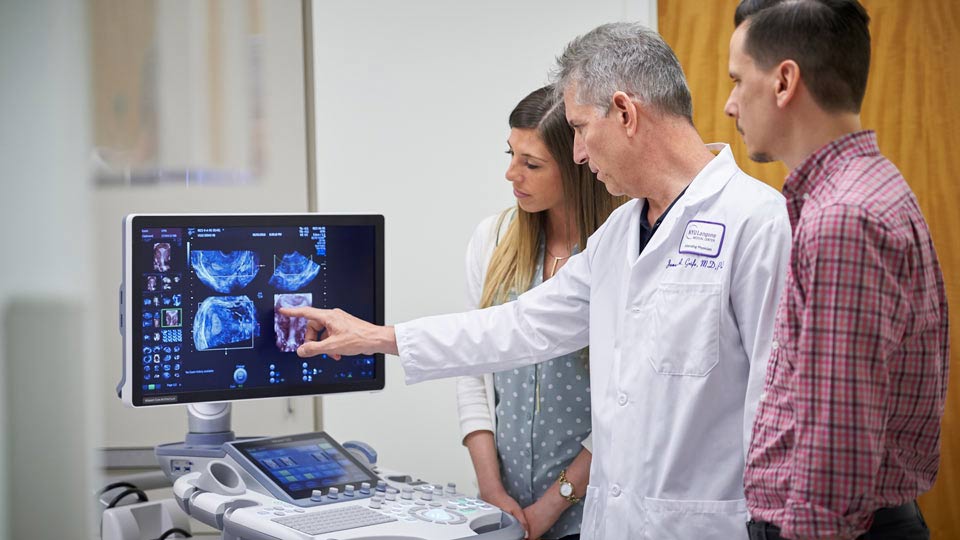Preimplantation Genetic Testing
Preimplantation genetic diagnosis (PGD) and preimplantation genetic screening (PGS) are types of testing performed on an embryo in the early stages of development. These tests are performed on more than three quarters of the embryos produced during traditional in vitro fertilization (IVF) treatment attempts completed at the NYU Langone Fertility Center.
Preimplantation genetic testing is used to determine whether the embryo has any abnormalities that could increase the odds of miscarriage or of a child being born with health problems.
Dr. James A. Grifo, director of the NYU Langone Fertility Center and a past president of the Society for Assisted Reproductive Technology, is a leader in performing these procedures. He performed the first embryo biopsy that led to a live birth in the United States.

Both PGS and PGD require that a few cells be removed from the embryo. This procedure, called embryo biopsy, is considered safe.
Preimplantation Genetic Screening
PGS allows doctors to look for abnormalities caused by too many or too few chromosomes in the embryo’s DNA. Such abnormalities are common, and their incidence increases with maternal age. In women age 30 and younger, 30 to 40 percent of embryos screened exhibit chromosomal irregularities. That percentage increases to 70 to 90 percent in women older than age 40.
A woman is more likely to become pregnant from an embryo that has been tested and is known to be chromosomally normal. Genetic screening also reduces the chance of twins or higher order pregnancies—because each tested embryo has a better chance of developing into a fetus, fewer embryos can be transferred. Most often, we recommend transferring only 1 embryo at a time, which reduces the chance of a multiple birth to 1 to 2 percent.
The use of tested embryos also decreases the risk of miscarriage and pregnancy loss, especially in women who are older, have experienced recurrent miscarriage, or are at an increased risk for chromosomal abnormalities called translocations.
Live birth rates following transfer of screened embryos exceed 50 percent at our program, regardless of female age at the time of egg harvest. However, genetic screening of embryos formed from the eggs of individuals older than 44 are most often chromosomally abnormal, and in some cases no viable embryos are available.
Preimplantation Genetic Diagnosis
PGD is used by couples dealing with issues related to a known family history of genetic disease, repeated IVF failures, recurring miscarriages, or a history of genetically abnormal pregnancies. PGD allows us to identify harmful gene mutations before implantation.
PGD can identify specific genes associated with conditions such as cystic fibrosis, hemophilia, Huntington disease, Marfan syndrome, muscular dystrophy, thalassemia, Tay-Sachs disease, spinal muscular atrophy, and sickle cell anemia.
Contact Us
To schedule an appointment, please contact one of our specialists or call the Fertility Center at 212-263-8990.